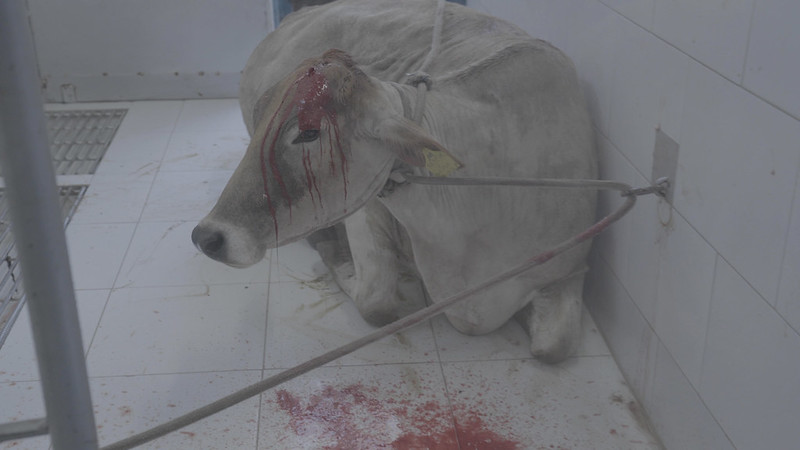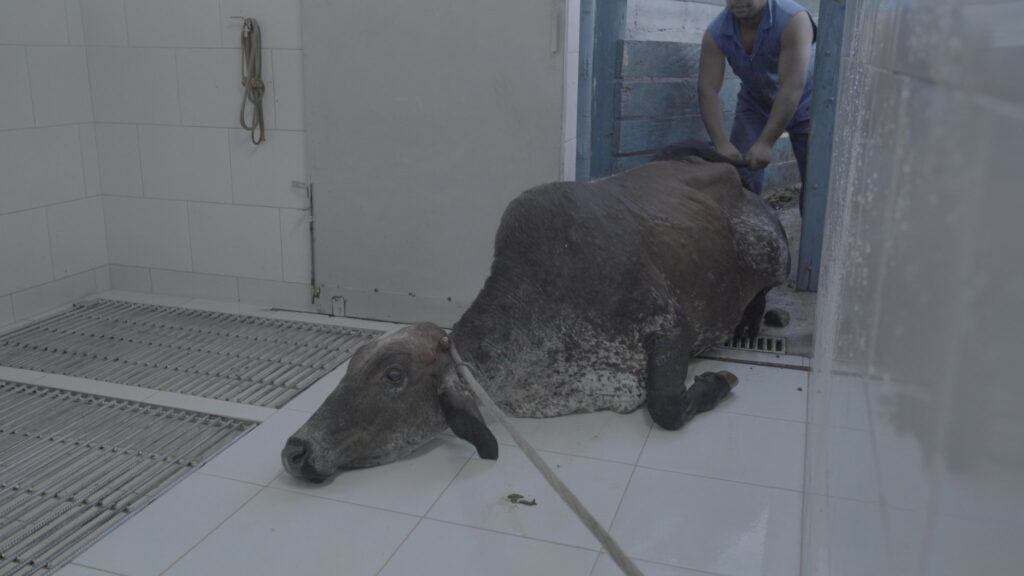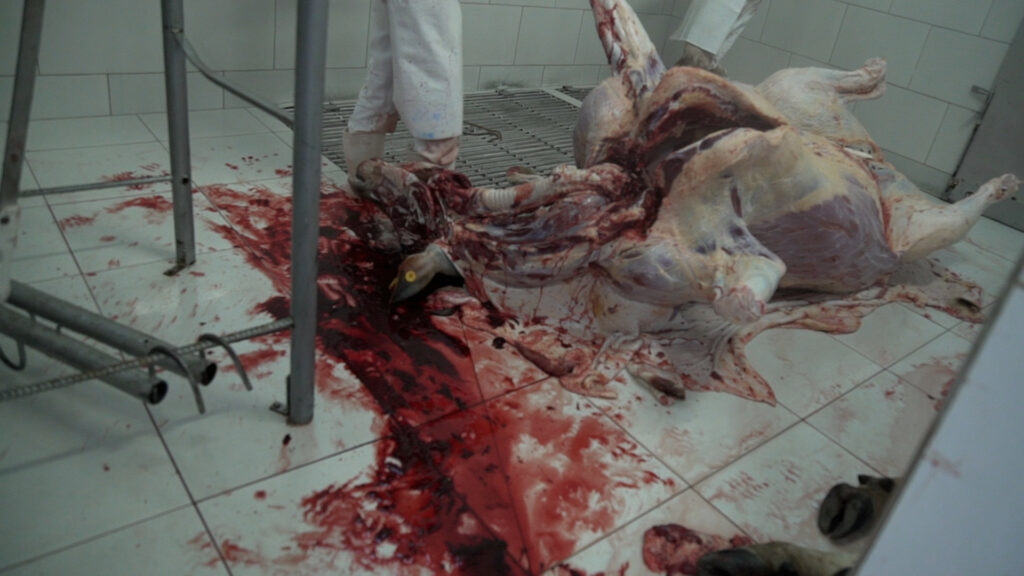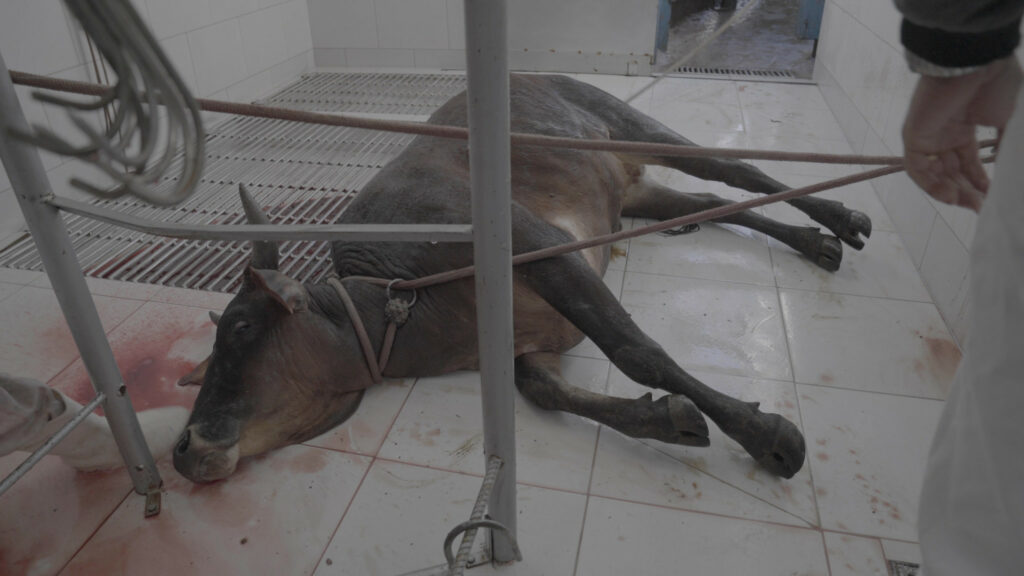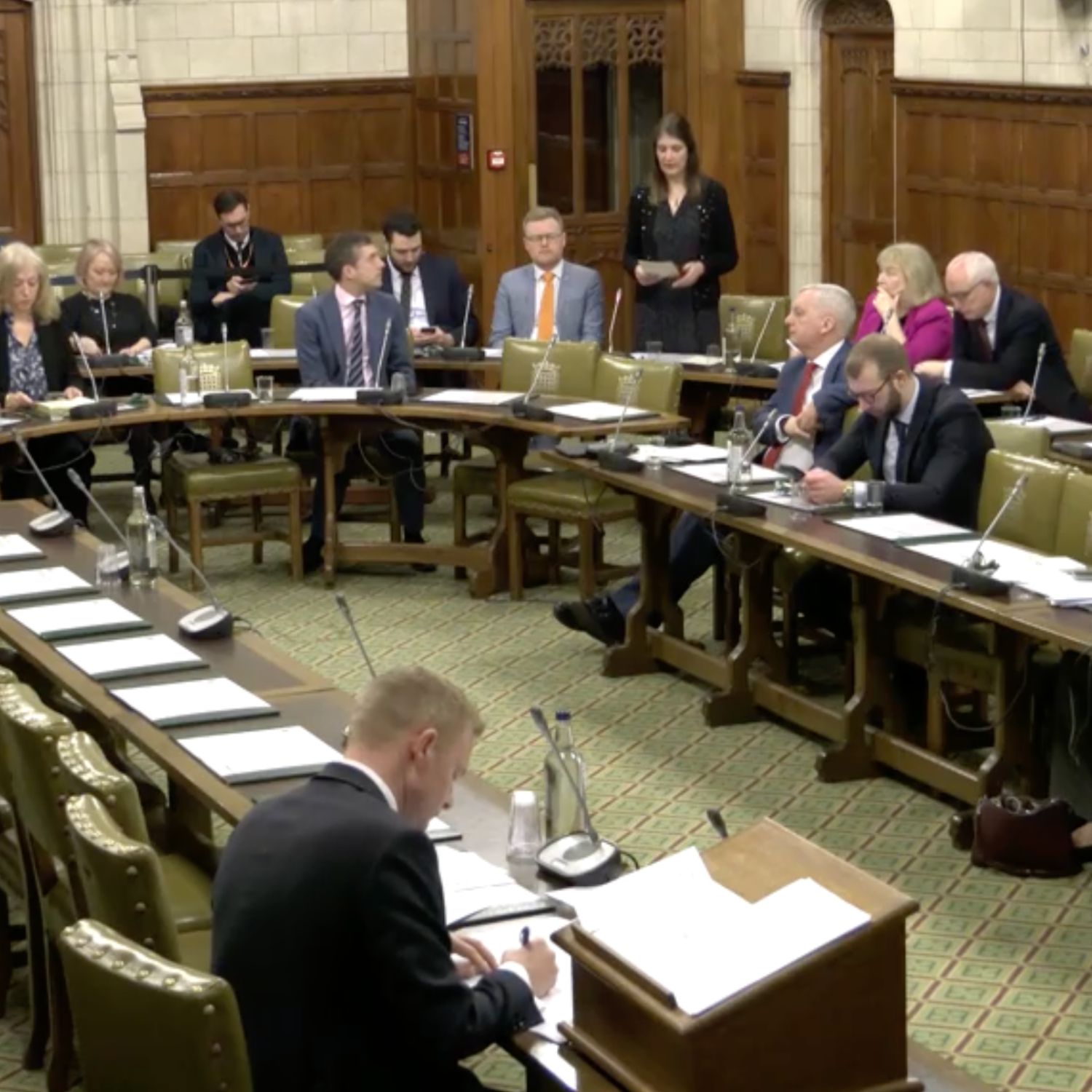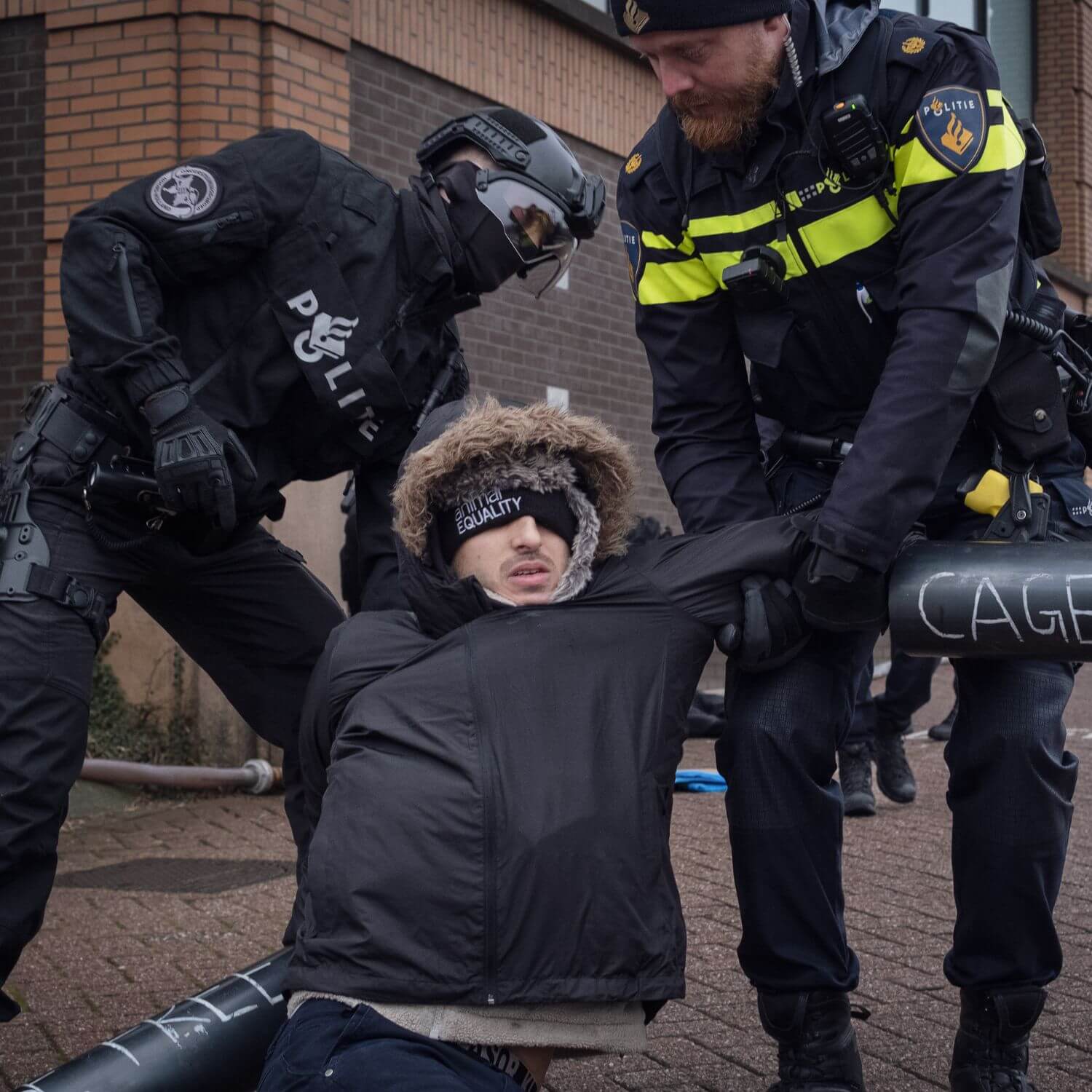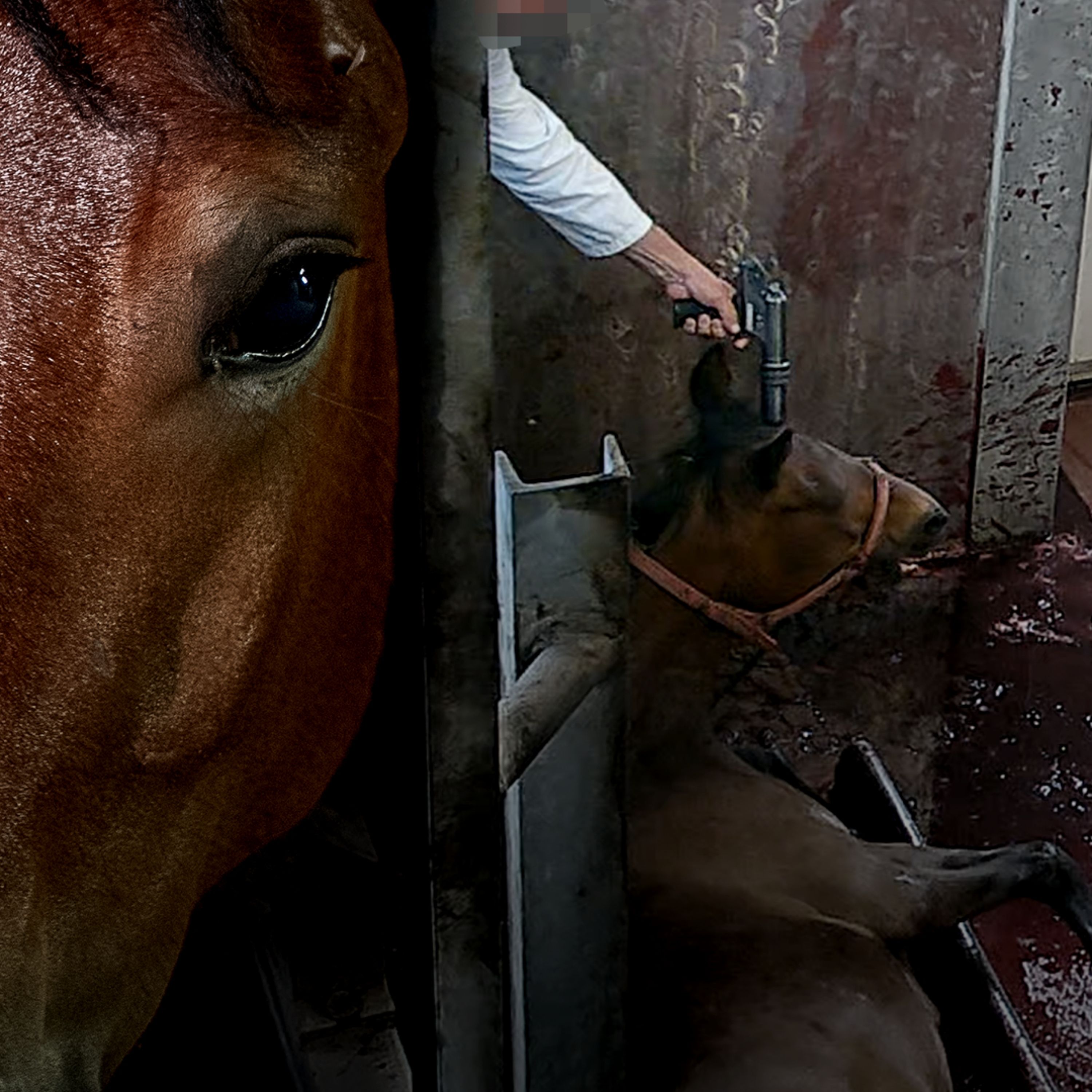Animal Equality Brazil Launches New Investigation Inside Country’s Slaughterhouses And Calls For The Senate To Stop The Self-Control Bill
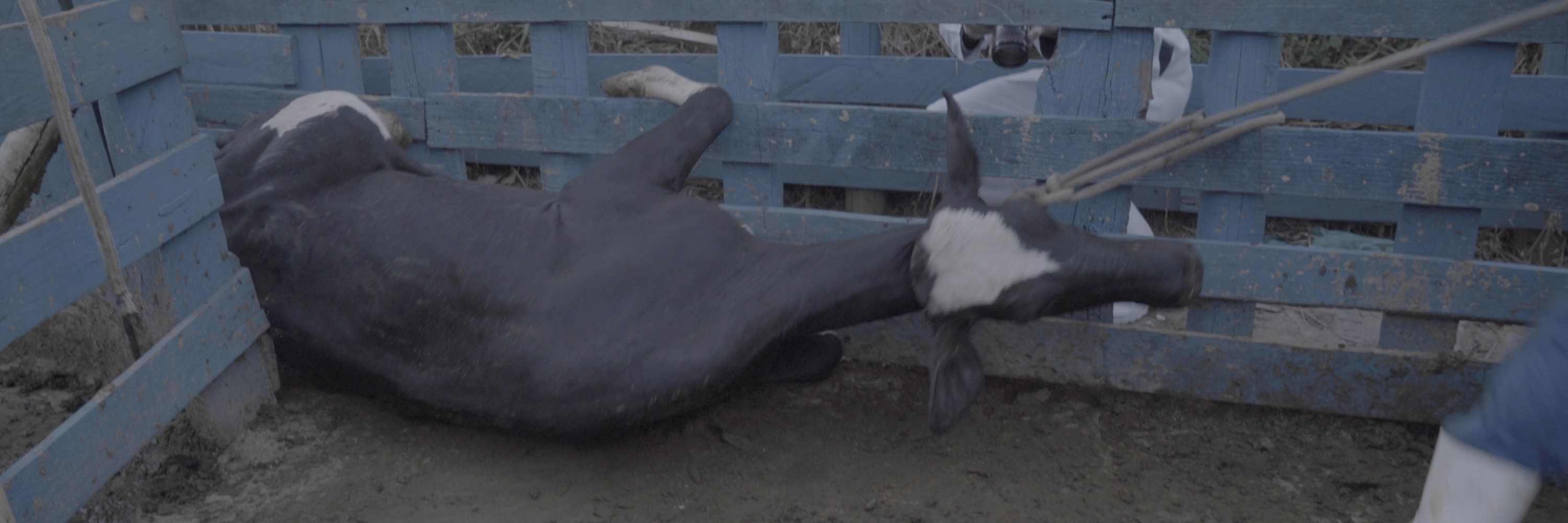
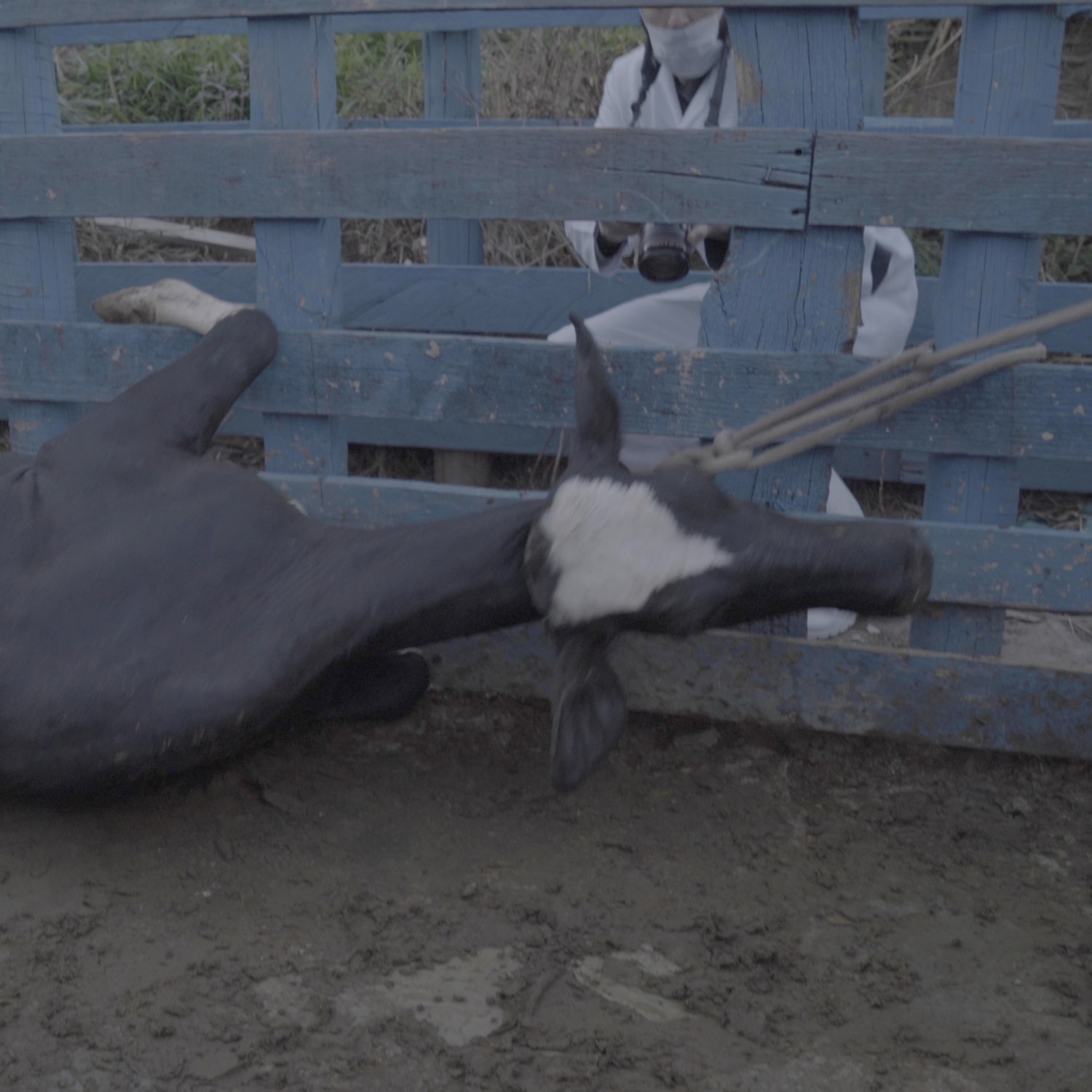
Animal Equality Brazil has launched a new national campaign calling for a bill of ‘self-control’ to be urgently stopped in its tracks. The Bill hands over the responsibility of conducting inspections inside farms and slaughterhouses from the Government to the animal agriculture industry. If approved, the meat industry, including farms and slaughterhouses will be responsible for reporting compliance to agro sanitary norms, without the need for on-site inspection.
The Bill – known as the Bill of Self-Control – had been approved by the Senate’s Agricultural Commission and it would be sent to sanction. However, Animal Equality and other 13 organizations sent a letter to Senators asking for a plenary section and got the support of 16 Senators to file a request for expanding the debate on the impacts of the Bill to animals, to human health and to consumer’s rights.
Animal Equality’s latest investigation proves that if the Bill is approved, it will have huge consequences for public health and will leave animals even more susceptible to cases of mistreatment and cruelty.
Why Inspections Are Important
The role of agricultural inspections is to monitor what is taking place within farms and slaughterhouses and to identify when there is an absence of adequate controls or a failure to meet existing laws and regulations. Any discrepancies or issues in abiding by legislation can compromise not only the right of animals to be protected from cruelty but also public health. This is why these inspections must be carried out by external, independent bodies that are not bound or conflicted by economic interests.
Over the past 20 years, beef exports in Brazil have increased by 462%, while the number of agricultural inspectors has decreased by 37%. This is the result of a significant reduction in the investment that the Brazilian Government has made in agricultural defence, which was reduced by 98.63% since 2014.
Although declared as official, due to the lack of agricultural inspectors, the three slaughterhouses that we investigated were found to be conducting illegal practices during slaughter on many occasions. Many employees lacked adequate training, causing them to commit several animal welfare violations and a failure to meet legal sanitary regulations.
Brazilian slaughterhouses need more inspectors and stricter, more effective supervision. The animals forced into these cruel facilities certainly cannot be left at the mercy of the industry itself which is merely interested in making money.
Our Findings
Our footage revealed extreme violence towards animals during slaughter, as well as exposing seriously unsanitary conditions. Our investigators filmed:
- Employees kicking animals in the face and twisting their tails;
- Improper stunning, meaning that animals were fully conscious at the moment of death;
- Animals having their skin and legs removed while they were still alive;
- Employees opening the animal’s body on the floor, creating a significant and high risk of contamination of their flesh – a potential cause of the spread of dangerous zoonotic diseases.
Cases of deliberate mistreatment and cruelty are frequent in slaughterhouses, and agricultural inspections play an important part in aiming to reduce such illegality. If this Bill is approved, it will mean decades of regression of what has been achieved so far in terms of animal welfare, which we still consider insufficient.
Carla Letttieri – Executive Director of Animal Equality Brazil
Our findings serve as proof that regular, official inspections inside farms and slaughterhouses are of absolute importance to better protect farmed animals, as well as public health.
All About Money
Instead of strengthening the inspection system and better protecting animals and consumers, the Brazilian Government wants to make it more flexible for the meat industry. Approving the Bill of Self-Control will only benefit the interests of companies.
The animal agriculture industry has a huge vested interest in keeping costs down and kill lines fast. The wellbeing of animals is not the key priority.
What We Are Doing
Animal Equality, alongside a number of other animal protection organizations, sent an open letter to Senators urging them to postpone the vote on the Bill of Self-Control and to allow for a new public hearing to receive comments and insights from animal advocates and members of the public.
Animal Equality, and our dedicated supporters, have been contacting the media and members of the Senate to make sure this critical issue does not go unnoticed.
We also launched a national petition urging the Senate not to pass the Bill, which has so far been signed by 8,000 people.
What You Can Do
Our investigations are at the core of what we do and they are a vital tool to show the public the reality of factory farms and slaughterhouses and accelerate change for animals.
Support our investigative and legal work today by making a donation.
While creating new laws to protect animals – as well as enforcing existing ones – is crucial, the best way to protect animals is to leave them off your plate. Help us build a more compassionate world. Try plant-based and encourage your family and friends to also enjoy a more compassionate way of eating. Together, we will build a brighter world for animals.

